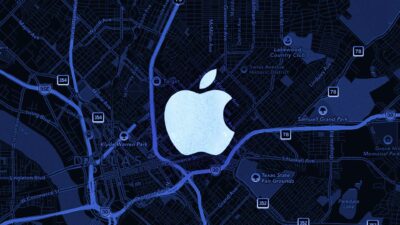Apple CEO, Tim Cook, published an open letter to customers yesterday addressing the criticism over the Apple Maps app in iOS 6. In the letter, Cook apologizes for not meeting customer expectations and gives several alternate mapping solutions including the iOS map apps Bing, MapQuest and Waze as well as how to add mobile web sites to their phones as icons.
Tim Cook’s Open Letter About The Apple Maps App
Here’s the letter from Tim Cook and then some additional thoughts on the Apple/Google relationship below:
To our customers,
At Apple, we strive to make world-class products that deliver the best experience possible to our customers. With the launch of our new Maps last week, we fell short on this commitment. We are extremely sorry for the frustration this has caused our customers and we are doing everything we can to make Maps better.
We launched Maps initially with the first version of iOS. As time progressed, we wanted to provide our customers with even better Maps including features such as turn-by-turn directions, voice integration, Flyover and vector-based maps. In order to do this, we had to create a new version of Maps from the ground up.
There are already more than 100 million iOS devices using the new Apple Maps, with more and more joining us every day. In just over a week, iOS users with the new Maps have already searched for nearly half a billion locations. The more our customers use our Maps the better it will get and we greatly appreciate all of the feedback we have received from you.
While we’re improving Maps, you can try alternatives by downloading map apps from the App Store like Bing Maps, MapQuest and Waze, or use Google or Nokia maps by going to their websites and creating an icon on your home screen to their web app.
Everything we do at Apple is aimed at making our products the best in the world. We know that you expect that from us, and we will keep working non-stop until Maps lives up to the same incredibly high standard.
Tim Cook, Apple’s CEO
Apple’s Breakup WIth Google
It’s hard to tell exactly what happened with the Apple Maps app fiasco. Apple is known for amazing software experiences and their engineers had to have known that the Maps app wasn’t ready to be released. Apple must have wanted to end things with Google no matter how messy the break up was going to be.
When the iPhone first launched in 2007, Google was a perfect iOS platform partner. They had great software services like YouTube and Google Maps. However, since then, Google has launched both their own mobile software and hardware products with Android. For Apple, still being “in bed” with a direct competitor isn’t ideal. It’s basically like letting an ex-girlfriend/boyfriend still keep their stuff in your house. But the fallout and damage to Apple’s reputation couldn’t have been worth cutting the cord with Google like this… could it? What do you think?
Photo via mobilekopitiam


Frank Wilson is a retired teacher with over 30 years of combined experience in the education, small business technology, and real estate business. He now blogs as a hobby and spends most days tinkering with old computers. Wilson is passionate about tech, enjoys fishing, and loves drinking beer.















The whole point of relaunching Maps was so that they would have control over the source data. Google wouldn’t give them turn-by-turn voice nav data, so they could never make iOS’ Google Maps as good as Android or other Google Maps clients. Google has also aggressively marketed turn-by-turn and other mapping features as a selling point of Android over iOS.
Long story short, they didn’t want another map partner – especially not one who’s about to make a big push into the mobile platform sector. They want their own map service. They wanted the new Maps release to be ready for iOS6, so they wouldn’t get stuck next year with their Google deal expiring mid-update cycle.
They probably didn’t expect this much backlash about the initial release, but I doubt they would have considered MS to be much of an option at any point. Even with the Maps backlash as bad as it was, their biggest problem selling iPhone 5s is manufacturing them quickly enough, so it’s not like they’re really going to pay thathigh of a price for this flub.